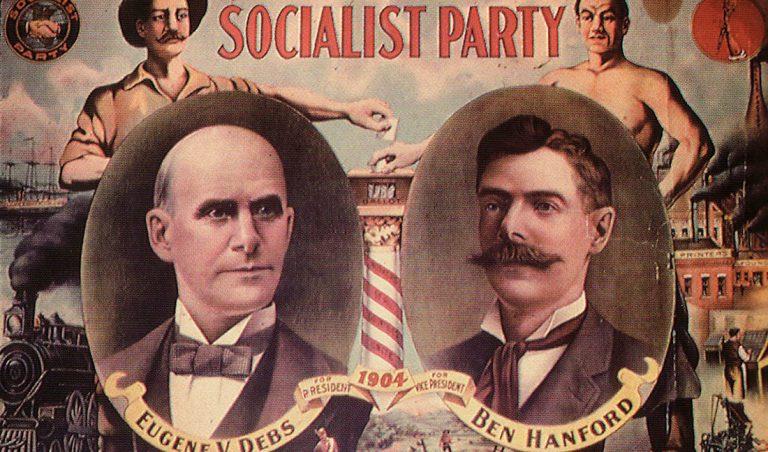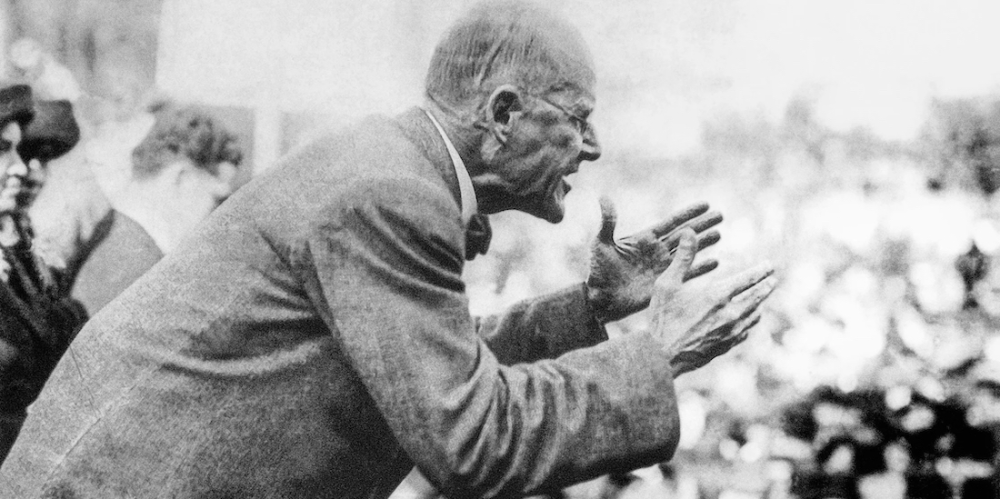
How early twentieth-century radicals built foundations for today’s worker protections and social programs
New York, N.Y. – The bustling streets of Lower Manhattan witnessed some of America’s most transformative political movements, yet few remember the Socialist Party of America once commanded nearly a million votes in presidential elections.
From 1900 to 1920, socialist ideology permeated American politics
with an influence that would fundamentally reshape labor relations,
social policy, and democratic participation across the nation.
The Rise of American Socialism
The Socialist Party of America, founded in 1901, emerged from the industrial upheavals of the Gilded Age. Eugene V. Debs, the charismatic railroad organizer who became the party’s most prominent leader, articulated a vision of economic democracy that resonated with millions of workers facing dangerous conditions, poverty wages, and corporate exploitation.
By 1912, the Socialist Party had elected over 1,200 candidates to public office, including mayors in major cities like Milwaukee, Berkeley, and Schenectady. Victor Berger became the first socialist elected to Congress, representing Wisconsin’s 5th district. The party’s newspaper, The Appeal to Reason, reached circulation figures exceeding 760,000 subscribers, making it one of the most widely read publications in America.
The movement’s strength lay not merely in electoral politics but in its comprehensive approach to social transformation. Socialist organizers established cooperative stores, worker education programs, and cultural institutions that provided alternatives to capitalist social structures. In cities like Milwaukee, socialist administrations implemented progressive reforms including public works projects, municipal utilities, and expanded social services that became models for New Deal programs decades later.

Labor Organizing and Industrial Democracy
Socialist activism proved instrumental in building America’s labor movement. The Industrial Workers of the World (I.W.W.), founded in 1905, embraced revolutionary socialism while organizing unskilled workers often ignored by traditional craft unions. “Big Bill” Haywood, Mother Jones, and other I.W.W. leaders led strikes that challenged corporate power and demanded industrial democracy.
The Lawrence Textile Strike of 1912 demonstrated socialism’s appeal to immigrant workers facing exploitation in American factories. Socialist organizers coordinated multilingual campaigns that united workers across ethnic divisions, achieving significant wage increases and improved working conditions. These victories proved that socialist principles could deliver tangible improvements in workers’ lives.
Socialist influence extended beyond industrial organizing to encompass broader social reforms. The party championed women’s suffrage, civil rights, and peace activism while opposing imperialism and militarism. Socialist feminists like Kate Richards O’Hare and Ella Reeve Bloor connected women’s liberation to economic justice, arguing that capitalist exploitation affected all aspects of social life.
Repression and Decline
World War I marked a turning point for American socialism. The Espionage Act of 1917 and Sedition Act of 1918 criminalized antiwar activism, leading to widespread persecution of socialist leaders. Eugene Debs received a ten-year prison sentence for delivering a speech opposing the war, while hundreds of socialist publications faced postal censorship.
The Red Scare of 1919-20 intensified government repression through Palmer Raids that targeted socialist organizations, labor unions, and immigrant communities. Federal agents conducted mass arrests, deportations, and surveillance operations that decimated the Socialist Party‘s organizational infrastructure. The Russian Revolution of 1917 further complicated American socialism as Cold War tensions emerged.
Lasting Impact on American Society
Despite political marginalization, socialist ideas profoundly influenced twentieth-century American policy. The Social Security Act, National Labor Relations Act, and other New Deal legislation incorporated demands that socialist organizers had championed for decades. Public education, municipal utilities, and worker safety regulations reflected socialist principles of democratic control over essential services.
Socialist veterans continued advocating for social justice through civil rights organizations, labor unions, and progressive political movements. A. Philip Randolph, who began his career in socialist politics, became a crucial leader in the civil rights movement while maintaining commitments to economic democracy. Norman Thomas, who led the Socialist Party through the Depression era, influenced liberal intellectuals and policy makers who shaped postwar American society.
The democratic socialist tradition persisted through organizations like the Democratic Socialist Organizing Committee and Democratic Socialists of America, which continue advocating for economic justice and political democracy. Contemporary movements for Medicare for All, Green New Deal, and worker cooperatives echo demands that socialist organizers articulated over a century ago.
Even when Facing Opposition, Movements can Create Social Transformation
America’s socialist heritage demonstrates that radical political movements can achieve lasting social transformation even when facing intense opposition. The Socialist Party of America may have declined as an electoral force, but its vision of democratic socialism continues inspiring efforts to create a more equitable society. Understanding this history reveals how socialist ideas shaped modern America’s most cherished institutions and social protections.
Summary
America’s early socialist movement, led by figures like Eugene V. Debs and Victor Berger, commanded significant political influence from 1900 to 1920. The Socialist Party elected over 1,200 candidates nationwide while advocating for labor rights, women’s suffrage, and social reforms. Despite World War I repression and Red Scare persecution, socialist ideas fundamentally influenced New Deal legislation and continue shaping contemporary progressive movements.